Rebecca Booth (MSc, BU) and Associate Professor Donald Nordberg have produced another publication from work arising from Booth’s dissertation from the corporate governance programme taught on Guernsey. The International Journal of Disclosure and Governance (Palgrave) has accepted their qualitative study “Self or other: Directors’ attitudes towards policy initiatives for external board evaluation”, doi: 10.1057/s41310-020-00094-x. This is the second journal article to emerge from the study. In addition, the pair wrote a technical report last year for the New York-based think-tank The Conference Board Inc. and contributed to a consultation run by the UK Financial Reporting Council about the corporate governance code. The study’s insights also featured in a report published in 2019 by Minerva Analytics, a firm specialising in proxy voting research across Europe.
/ Full archive
Changes to the BU Bridging Fund Scheme
 In summer 2015, we launched the BU Bridging Fund Scheme which aims to provide additional stability to fixed-term researchers who are often employed on short term contacts linked to external funding. This situation may impact on continuity of employment due to breaks in employment, job security and can result in a costly loss of researcher talent for the institution.
In summer 2015, we launched the BU Bridging Fund Scheme which aims to provide additional stability to fixed-term researchers who are often employed on short term contacts linked to external funding. This situation may impact on continuity of employment due to breaks in employment, job security and can result in a costly loss of researcher talent for the institution.
The Scheme aims to mitigate these circumstances through early career planning, forward research project planning, redeployment where possible, or where feasible, by providing ‘bridging funding’ for the continuation of employment for a short-term (usually up to three months, but up to six months can be considered in exceptional situations) between research grants. It is intended to permit the temporary employment, in certain circumstances, of researchers between fixed-term contracts at BU, for whom no other source of funding is available, in order to:
(a) encourage the retention of experienced and skilled staff, and sustain research teams and expertise;
(b) avoid the break in employment and career which might otherwise be faced by such staff;
(c) maximise the opportunity for such staff to produce high-quality outputs and/or research impact at the end of funded contracts/grants.
The Scheme was updated in 2020 to:
- Update the process to link the funding model with the conditions at the point of application:
-
- Sufficient external funding has been secured to retain the researcher but there is an unavoidable gap between funding (usually up to three months, but up to six months can be considered). If these conditions are met at the point of application and the application is approved then the central budget will cover 100 per cent of the salary and employers’ on-costs during the bridging period.
- The researcher is named on a submitted application for research funding and the decision is pending with an outcome expected before the end of the bridging period. If these conditions are met at the point of application and the application is approved then the central budget will cover 50 per cent of the salary costs during the bridging period. The Faculty will be required to meet the remaining 50 per cent of the salary and employers’ on-costs during the bridging period.
-
- Employment legislation updates.
- Add an additional financial approval to the application process.
 To find out more about the scheme, including how to apply for bridging funding, see the scheme guidelines.
To find out more about the scheme, including how to apply for bridging funding, see the scheme guidelines.
The Bridging Fund Scheme is an action from our Athena SWAN action plan (which aims to create a more gender inclusive culture at BU) and our EC HR Excellence in Research Award (which aims to increase BU’s alignment with the national Concordat to Support the Career Development of Researchers).
Early Career Researcher – NERC Paleo Seminar Series
 From 8th September, the Natural Environment Research Council (NERC) are launching a weekly zoom for early career researchers working in the broad field of Paleo sciences.
From 8th September, the Natural Environment Research Council (NERC) are launching a weekly zoom for early career researchers working in the broad field of Paleo sciences.
PERCS (Paleo EaRly Career Seminars) is a weekly seminar series that promotes and features work by Early Career Researchers in a range of paleo sciences including paleontology, paleoecology, paleoceanography and paleoclimatology. While the speakers will be Early Career Researchers, the seminar is for people at every career stage. PERCS take place on Zoom, and consist of a live streamed short (~30 min) seminar followed by a Q&A session and an opportunity for small group discussion and networking with other attendees using break-out rooms. Recordings of most PERCS will be available to participants unable to attend live seminars. Seminars are (mostly) weekly on Tuesdays at 1500 UTC. PERCS are intended as a venue to share research, strengthen our global community, and facilitate collaboration between the Palaeo sciences. All palaeo-researchers and fans (regardless of career stage) are enthusiastically welcome.
NERC strive towards diversity, equity, inclusion and accessibility with a diverse line-up of speakers from around the world, and a strong commitment towards fostering an inclusive environment. They also implement live auto-captions, and have both synchronous and asynchronous viewing options.
To be added to the email list that receives seminar invitations and announcements, please review their code of conduct and then sign up through a google form.
The full schedule of events and the speakers/topics is available on the website. https://paleopercs.com/.
Faculty of Science & Technology receives an additional £60k CyberASAP funding
Dr Huseyin Dogan (Principle Investigator) and Co-Investigators (Dr Paul Whittington, Professor Keith Phalp, Dr Nan Jiang and Dr Benjamin Gorman) from the Faculty of Science & Technology have been awarded an additional £59,578 funding from the Department of Culture, Media and Sport, in collaboration with Innovate UK and the Knowledge Transfer Network, through the Cyber Academic Startup Accelerator Programme (CyberASAP). This external funding supports BU2025 Assistive Technology Strategic Investment Area. The CyberASAP programme is designed to assist academics in UK Universities to commercialise cyber security ideas, by providing expertise knowledge and support. Lesley Hutchins (Research Commercialisation Manager, RDS) is included in our team to guide the commercialisation of Authentibility Pass through a potential BU spinout company. We also receive valued administrative support from Caroline Jarmolkiewicz, Personal Assistant to Dr Paul Whittington.
We have discovered that people with disabilities can encounter barriers due to web security and privacy technologies. This could result in them being prevented from purchasing goods or registering for services, leading to frustration and cancelling transactions. Our CyberASAP project, named Authentibility Pass, will be an innovative solution to assist people with disabilities to communicate their authentication and accessibility requirements to higher education institutions, schools, non-profit organisations, small medium enterprises and financial institutions. Authentibility Pass builds on the knowledge obtained during Dr Paul Whittington’s PhD (supervised by Dr Huseyin Dogan and Professor Keith Phalp) and postdoctoral research through the development of the SmartAbility Framework.
This funding follows our previously successful bid for Phase 1 of the programme, where we received £31,612 to develop our value proposition and to conduct market validation of our concept. We conducted market analysis and identified that there is a need for Authentibility Pass, as organisations who do not comply with accessibility regulations lose approximately £80k per annum through accessibility claims. Our market validation highlighted that people with disabilities often need to repeatedly inform organisations of their authentication and accessibility requirements. Authentibility Pass will enable customers to enter their requirements into a smartphone application, which can be stored in secure organisational databases.
During Phase 2 (which runs from September 2020 to February 2021), Vers Creative UK (CEO David Passmore) will be sub-contracted to develop the Authentibility Pass Proof of Concept, consisting of an Android application, database and web interface for managing the database. We believe that adopting Authentibility Pass will assist organisations to comply with accessibility and equality regulations, as well as facilitating awareness of the requirements of customers with disabilities when interacting with organisations. The solution will be customisable to suit specific organisations through a ‘Software as a Service’ with varying licensing options, e.g. annual subscriptions for hosting the database or one-off costs to provide an API that interfaces with existing database systems.
Our aim is to evolve Authentibility Pass into a commercial product that improves the relationship with customers, students or pupils who have reduced abilities. The CyberASAP project will culminate in a Demo Day in February 2021 at Level 39 of Canary Wharf (COVID-19 permitting), where we will present our Authentibility Pass Proof of Concept to potential investors.
COVID-19 publications at BU
Over the past half year or so BU academics have produced a healthy crop of publications on COVID-19/ corona virus. Searching the word ‘COVID’ today Saturday 5th September, on the university’s repository BURO (Bournemouth University Research Online), resulted in 59 records of publications whilst searching for ‘corona’ gave 48 publications. Removing duplicates, obviously irrelevant papers (e.g. one paper had a co-author called ‘Corona’) and papers published prior to 2020 resulted in a combined total of 66 BU publications. Some papers are obviously focused on COVID-19/corona virus, as the title suggests.  Others may merely mention corona virus or COVID-19 in the body of the text, perhaps as a reason for delay in the research, as a new opportunity or barrier and so on. A search on Scopus and BRIAN added nine more Bournemouth co-authored papers to the reference list below.
Others may merely mention corona virus or COVID-19 in the body of the text, perhaps as a reason for delay in the research, as a new opportunity or barrier and so on. A search on Scopus and BRIAN added nine more Bournemouth co-authored papers to the reference list below.
References from BURO & Scopus:
- Adedoyin, F., Bekun, F.V., Driha, M.O. and Balsalobre-Lorente, D., 2020. The Effects of Air Transportation, Energy, ICT and FDI on Economic Growth in The Industry 4.0 Era: Evidence from the United States. Technological Forecasting and Social Change. (In Press)
- Ahmed, O., Carmody, S., Walker, L. and Ahmad, I., 2020. The need for speed! 10 ways that WhatsApp and instant messaging can enhance communication (and clinical care) in sport & exercise medicine. British Journal of Sports Medicine. (In Press)
- Ahmed, O., Fulcher, M., Malone, D., Mira Y Lopez, C., Rho, M. and Strojna, A., 2020. The introduction of temporary concussion substitutions in disability football: Are we “headed” in the right direction? Football Medicine & Performance, Spring (32), 13 – 16.
- Akudjedu, T.N., Lawal, O., Sharma, M., Elliott, J., Stewart, S., Gilleece, T., McFadden, S. and Franklin, J.M., 2020. Impact of the COVID-19 pandemic on radiography practice: findings from a UK radiography workforce survey. British Journal of Radiology. (In Press)
- Alhassan, G., Adedoyin, F., Bekun, F.V. and Agabo, T., 2020. Does Life Expectancy, Death Rate and Public Health Expenditure matter in sustaining Economic growth under COVID-19: Empirical Evidence from Nigeria? Journal of Public Affairs. (In Press)
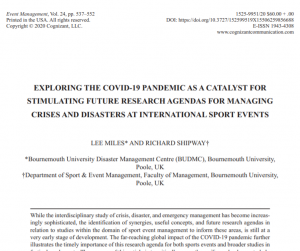
- Al Maamari, G., 2020. Multiple stakeholders’ perception of the long-term success of project: a critical study of Oman tourism resort projects. Doctoral Thesis (Doctoral). Bournemouth University
- Angelopoulos, C.M. and Katos, V., 2020. DHP Framework: Digital Health Passports Using Blockchain – Use case on international tourism during the COVID-19 pandemic. arXiv (2005.08922v2 [cs.CY]).
- Asim, M., Sathian, B., van Teijlingen, E., Mekkodathil, A., Subramanya, S.H. and Simkhada, P., 2020. COVID-19 Pandemic: Public Health Implications in Nepal. Nepal Journal of Epidemiology, 10 (1), 817 – 820.
- Azman, A., Singh, P., Parker, J. and Ashencaen Crabtree, S., 2020. Addressing competency requirements of social work students during the Covid-19 pandemic in Malaysia. Social Work Education. (In Press) DOI: 10.1080/02615479.2020.1815692
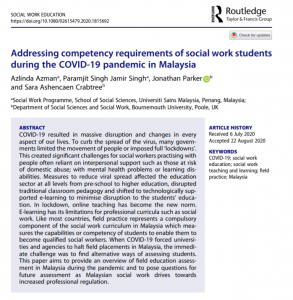
- Balsalobre- Lorente, D., Driha, O.M., Bekun, F.V., Sinha, A. and Adedoyin, F., 2020. Consequences of Covid-19 on the Social Isolation of the Chinese Economy: Accounting for the Role of Reduction in Carbon Emissions. Air Quality, Atmosphere and Health. (In Press)
- Cai, W., McKenna, B., Wassler, P. and Williams, N., 2020. Rethinking Knowledge Creation in Information Technology and Tourism. Journal of Travel Research. (In Press)
- Caudwell, J., 2020. Transgender and Non-binary Swimming in the UK: Indoor Public Pool Spaces and Un/Safety. Frontiers in Sociology, 5, 64
- Clarkson, B.G., Culvin, A., Pope, S. and Parry, K. D., 2020. Covid-19: Reflections on threat and uncertainty for the future of elite women’s football in England. Managing Sport and Leisure. (In Press)
- Côté, P, Bussières, A, Cassidy, J., Hartvigsen, J, Kawchuk, G., Leboeuf-Yde, C, Mior, S, Schneider, M, and more than 140 signatories# call for an end to pseudoscientif, and Breen, A. C., 2020. A united statement of the global chiropractic research community against the pseudoscientific claim that chiropractic care boosts immunity. Chiropractic & Manual Therapies, 28 (1), 21.
- Cretan, R. and Light, D., 2020. COVID-19 in Romania: transnational labour, geopolitics, and the Roma ‘outsiders’. Eurasian Geography & Economics. (In Press)
- Escaith, H., Khorana, S., MacGregor, J., Vickers, B. and Ali, S., 2020. The Potential Impact of COVID-19 on Commonwealth Trade, Recovery and Resilience. The Commonwealth Trade Hot Topics, 161.
- Esteves, L., Ashencaen Crabtree, S. and Hemingway, A., 2020. Impacts of C-19 lockdown on the work-life balance of BU academics – Preliminary results. Working Paper. Poole, England: Bournemouth University.
- Fowler-Watt, K., Majin, G., Sunderland, M., Phillips, M., Brine, D., Bissell, A. and Murphy, J., 2020. Reflections on the Shifting Shape of Journalism Education in the Covid-19 pandemic. Digital Culture and Education (June 22). (In Press)
- Gingrich, O., Shemza, A. and Almena, M., 2020. TRANSFORMATIONS: New media art between communities and professional practice. In: EVA London, 16-18 November 2020, London. (In Press)
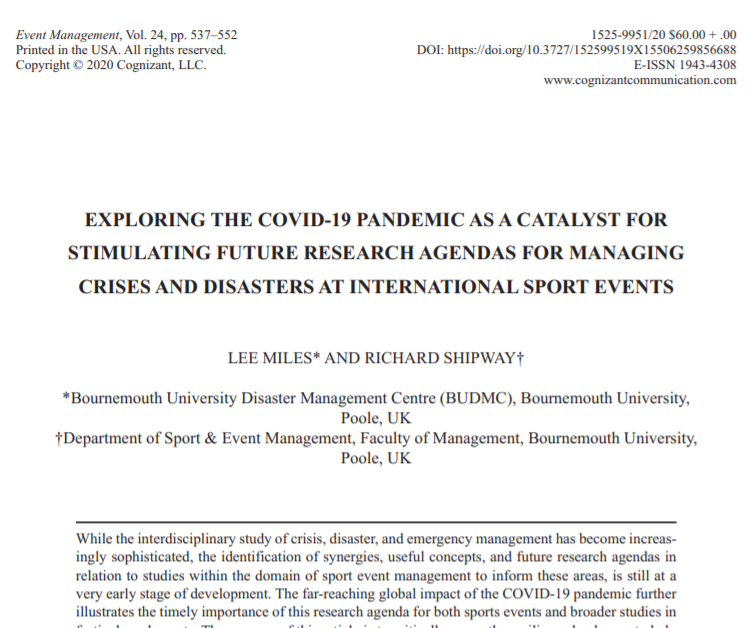 Giousmpasoglou C, Marinakou E, Zopiatis A. 2020. Ο ρόλος των Γενικών Διευθυντών στα ξενοδοχεία 4* και 5* κατά τη διάρκεια της πανδημίας COVID-19: μία έρευνα σε 45 χώρες. Money & Tourism Magazine
Giousmpasoglou C, Marinakou E, Zopiatis A. 2020. Ο ρόλος των Γενικών Διευθυντών στα ξενοδοχεία 4* και 5* κατά τη διάρκεια της πανδημίας COVID-19: μία έρευνα σε 45 χώρες. Money & Tourism Magazine- Hobson, S., Hind, M, Mojsilovic, A, Varshney, KR. 2020 Trust and Transparency in Contact Tracing Applications, CoRR, abs/2006.11356
- Hodge, S. and Johnson, L., 2020. The digitally resilient student. The Psychologist.
- Hughes, J.G., Leydon, G.M., Watts, S., Hughes, S., Brindle, L.A., Arden-Close, E., Bacon, R., Birch, B., Carballo, L., Plant, H., Moore, C.M., Stuart, B., Yao, G., Lewith, G. and Richardson, A., 2020. A feasibility study of a psycho-educational support intervention for men with prostate cancer on active surveillance. Cancer Reports, 3 (2), e1230.
- Jackson, D., Bradbury-Jones, C., Baptiste, D., Gelling, L. H., Morin, K., Neville, S. and Smith, G.D., 2020. Life in the pandemic: Some reflections on nursing in the context of COVID-19. Journal of Clinical Nursing, 29 (13-14), 2041-2043.
- Jackson, D., Bradbury-Jones, C., Baptiste, D., Gelling, L.H., Morin, K., Neville, S. and Smith, G.D., 2020. International Nurses Day 2020: Remembering nurses who have died in the COVID-19 pandemic. Journal of Clinical Nursing, 29 (13-14), 2050-52.
- Jan, R. and van Teijlingen, E., 2020. COVID-19: The New Corona Virus Upsetting Our World. Journal of Asian Midwives, 7 (1), 1 – 3.
- Kaolawanich, R., Oe, H., Yamaoka, Y. and Chang, C. Y., 2020. A discussion of a luxury apparel brand strategy in an emerging market: Conceptual model with network perspectives. Journal of Social, Cultural and Political Studies, 4 (2), 58 – 72.
- Khashu, M., Provenzi, L., Adama, E., Garfield, C., Koliouli, F., Fisher, D., Nørgaard, B., Thomson-Salo, F., van Teijlingen, E., Ireland, J. and Feeley, N., 2020. COVID-19 restrictions and fathers of infants in neonatal care. BMJ Global Health, 5 (4).
- Khorana, S, Escaith, H, MacGregor J, Vickers B, Ali S., 2020 The Potential Impact of COVID-19 on Commonwealth Trade, Recovery and Resilience he Commonwealth Trade Hot Topics Article number 161

- Li, Z., Feng, C., Zheng, J., Wu, M. and Yu, H., 2020. Towards Adversarial Robustness via Feature Matching. IEEE Access, 8, 88594 – 88603.
- Light, D., Cretan, R., Voiculescu, S. and Juca, S., 2020. Introduction: Changing Tourism in the Cities of Post-communist Central and Eastern Europe. Journal of Balkans and Near Eastern Studies, 22 (4), 465-477.
- Lyne, M., Brown, K. and Grimshaw, K., 2020. Advance care planning. Poole, England: NCPQSW Bournemouth University.
- Lyne, M., Grimshaw, K. and Brown, K., 2020a. The Mental Capacity Act requirements for clinical decisions regarding treatment and care. Poole, England: NCPQSW Bournemouth University
- Lyne, M., Grimshaw, K. and Brown, K., 2020b. Guidance on the use of the Mental Capacity Act for decisions regarding clinical treatment and care: An introduction. Poole, England: NCPQSW Bournemouth University.
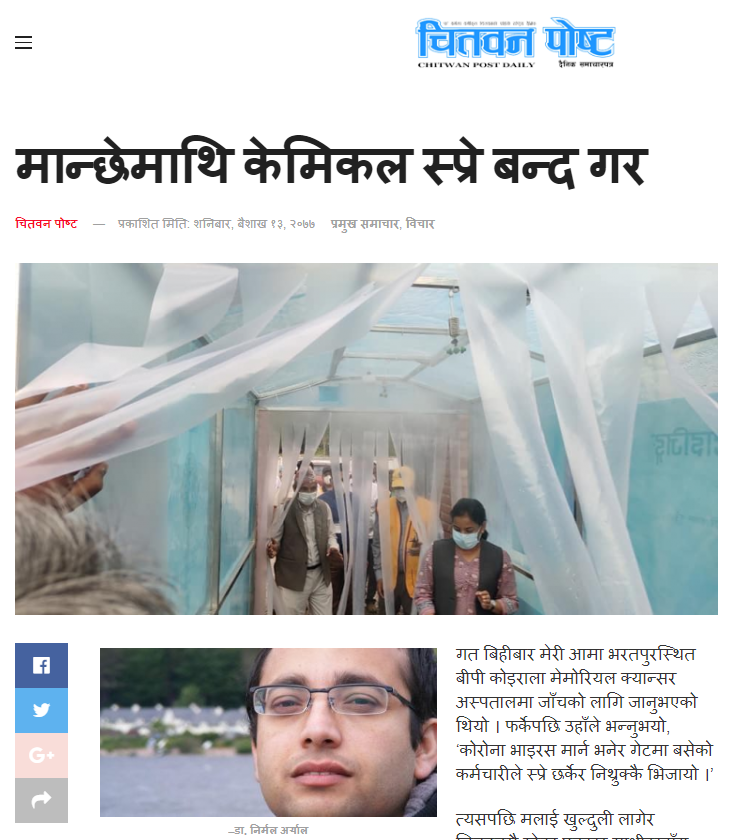
- Lyne, M., Grimshaw, K. and Brown, K., 2020c. The Mental Capacity Act requirements when an individual lacks the mental capacity to consent to treatment and care. Poole, England: NCPQSW Bournemouth University.
- Lyne, M. and Parker, J., 2020. From Ovid to Covid: The metamorphosis of Advanced Decisions to Refuse Treatment into a safeguarding issue. Journal of Adult Protection. (In Press)
- Mahato, P. K., Tamang, P., Shahi, P., Aryal, N., Regmi, P., Van Teijlingen, E. and Simkhada, P., 2020. Effects of COVID-19 during lockdown in Nepal. Europasian Journal of Medical Sciences, 2 (2).
- Matthews, J., 2020. “Cultural exceptionalism” in the global exchange of (mis)information around Japan’s responses to Covid-19. Media and Communication, 8 (2), 448-451.
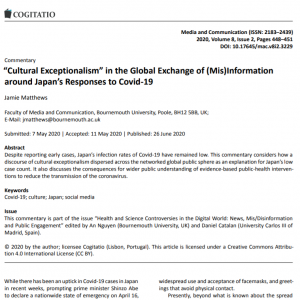
- McAlaney, J. and Hills, P.J., 2020. Understanding Phishing Email Processing and Perceived Trustworthiness Through Eye Tracking. Frontiers in Psychology, 11, 1756.
- Miles, L. and Shipway, R., 2020. Exploring the COVID-19 Pandemic as a Catalyst for Stimulating Future Research Agendas for Managing Crises and Disasters at International Sport Events. Event Management, 24 (4), 537- 552.
- Mimler, M., 2020. Current developments – Europe: The final nail in the coffin for the patent with unitary effect or just another bump in the road? The German Constitutional Court declares void the German Act of Approval on a Unified Patent Court (2 BvR 739/17). Intellectual Property Forum, 120 (June), 89 – 91.
- Muniz-Pardos, B., Shurlock, J., Debruyne, A., Steinacker, J.M., Börjesson, M., Wolfarth, B., Bilzon, J.L.J., Löllgen, H., Ionescu, A., Zupet, P., Dohi, M., Swart, J., Badtieva, V., Zelenkova, I., Casasco, M., Geistlinger, M., Bachl, N., Tsofliou, F., Di Luigi, L., Bigard, X., Papadopoulou, T., Webborn, N., Singleton, P., Miller, M., Pigozzi, F. and Pitsiladis, Y.P., 2020. Collateral Health Issues Derived from the Covid-19 Pandemic. Sports Medicine – Open, 6 (1), 35.
- Ndasi, W., Bolat, E. and Roushan, G., 2020. Digital cause-related marketing advertising formats: Do the perceived donation amount offer and gender matters in display advertising on non-profit digital sites? Journal of Advertising Research. (In Press)
- Nguyen, A. and Catalan, D., 2020. Digital Mis/Disinformation and Public Engagment with Health and Science Controversies: Fresh Perspectives from Covid-19. Media and Communication, 8 (2), 323 – 328.
- Nguyen, H. and Nguyen, A., 2020. Covid-19 Misinformation and the Social (Media) Amplification of Risk: A Vietnamese Perspective. Media and Communication, 8 (2), 444-447.
- O’Carroll, V., Owens, M., Sy, M., El-Awaisi, A., Xyrichis, A., Leigh, J., Nagraj, S., Huber, M., Hutchings, M. and McFadyen, A., 2020. Top tips for interprofessional education and collaborative practice research: a guide for students and early career researchers. Journal of Interprofessional Care. (In Press)
 Oe, H., 2020. Discussion of digital gaming’s impact on players’ well-being during the COVID-19. arXiv (2005.00594v1 [cs.CY]).
Oe, H., 2020. Discussion of digital gaming’s impact on players’ well-being during the COVID-19. arXiv (2005.00594v1 [cs.CY]).- Oe, H., Takemoto, T. and Ridwan, M., 2020. Is Gamification a Magic Tool?: Illusion, Remedy, and Future Opportunities in Enhancing Learning Outcomes during and beyond the COVID-19. Budapest International Research and Critics in Linguistics and Education (BirLE) Journal, 3 (3), 1401 – 1414.
- Oe, H. and Weeks, M., 2020. How to Support Vulnerable Citizens during the COVID-19 Lockdown: A Community Initiative from Ubiquitous Network Perspectives. Budapest International Research and Critics Institute (BIRCI-Journal), 3 (2), 1369 – 1377.
- Parrilli, M. D., Balavac, M. and Radicic, D., 2020. Business innovation modes and their impact on innovation outputs: Regional variations and the nature of innovation across EU regions. Research Policy, 49 (8), 104047.
- Patsakis, C., Casino, F. and Katos, V., 2020. Encrypted and Covert DNS Queries for Botnets: Challenges and Countermeasures. Computers and Security, 88 (January), 101614.
- Pinder, A.C., Raghavan, R., Britton, J. R. and Cooke, S.J., 2020. COVID-19 and biodiversity: The paradox of cleaner rivers and elevated extinction risk to iconic fish species. Aquatic Conservation: Marine & Freshwater Ecosystems, 30 (6), 1061-1062.
- Richards, B., 2020. The causes of sanity. Free Associations (78), 19-32.
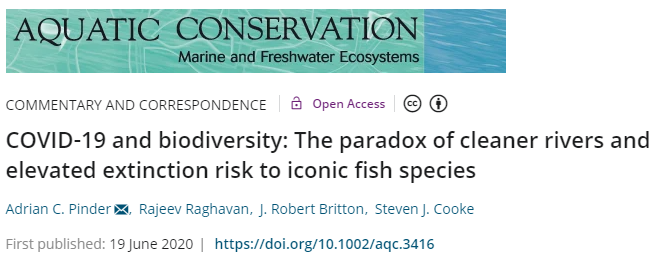
- Rosser, E. Westcott, L., Ali, P.A., Bosanquet, J., Castro-Sanchez, E., Dewing, J., McCormack, B., Merrell, J., Witham, G. 2020 The Need for Visible Nursing Leadership During COVID-19. Journal of Nursing Scholarship. (In Press)
- Rutherford, and Cownie, F., 2020. Teaching Advertising for the Public Good. Westminster Papers in Communication and Culture, 15 (2), 162-177.
- Short, M., Bitzer, J. and Rowlands, S., 2020. Testing times. The European Journal of Contraception and Reproductive Health Care. (In Press)
- Sathian, B., Asim, M., Mekkodathil, A., van Teijlingen, E., Subramanya, S.H., Simkhada, P., Marahatta, S.B. and Shrestha, U.M., 2020. Impact of COVID-19 on community health: A systematic review of a population of 82 million. Journal of Advances in Internal Medicine, 9 (1), 4 – 11.
- Simmonds A, Nunn A, Gray M, Hardie C, Mayo S, Peter E, Richards J. 2020. Pedagogical practices that influence professional identity formation in baccalaureate nursing education: A scoping review. Nurse Education Today 93:104516
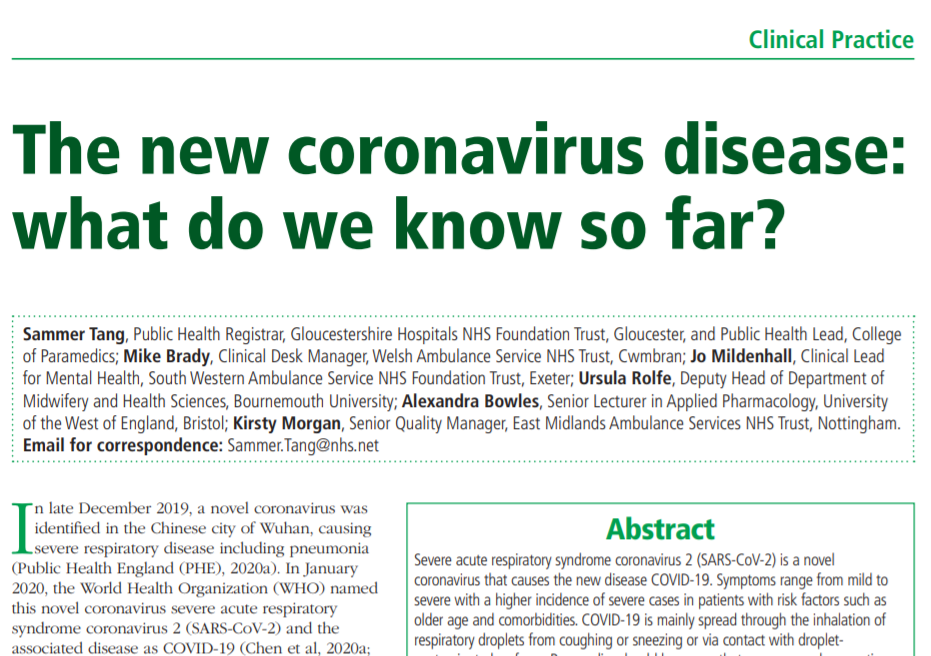
- Soopramanien, A., Jamwal, S. and Thomas, P., 2020. Digital health rehabilitation can improve access to care in spinal cord injury in the UK: A proposed solution. International Journal of Telerehabilitation, 12 (1), 3 – 16.
- Sreedharan, C., Thorsen, E., Upreti, L. and Sharma, S., 2020. Impact of COVID-19 on journalism in Nepal. Project Report. Tripureshwor, Kathmandu: Nepal Press Institute.
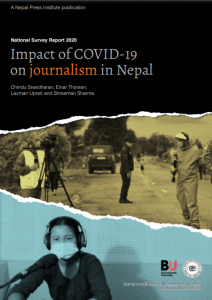
- Stankov, U., Filimonau, V. and Vujičić, M.D. 2020. A mindful shift: an opportunity for mindfulness-driven tourism in a post-pandemic world. Tourism Geographies. (In Press)
- Swain, I. D., 2020. Why the mask? The effectiveness of face masks in preventing the spread of respiratory infections such as COVID-19 – a home testing protocol. Journal of Medical Engineering & Technology, 1 – 4.
- Tamang, P., Mahato, P., van Teijlingen E, Simkhada, P. 2020 Pregnancy and COVID-19: Lessons so far, Healthy Newborn Network [14 April] healthynewbornnetwork.org/blog/pregnancy-and-covid-19-lessons-so-far/
- Tang,S., Brady,M., Mildenhall, J., Rolfe, U., Bowles,. A., Morgan,K,. 2020. The new coronavirus disease: what do we know so far? Journal of Paramedic Science, 12(5) https://doi.org/10.12968/jpar.2020.12.5.193
- Umesh U, Kundu, D, Selvaraj, C, Singh SK, Dubey, VK., 2020 Identification of new anti-nCoV drug chemical compounds from Indian spices exploiting SARS-CoV-2 main protease as target, Journal of Biomolecular Structure and Dynamics
- van Teijlingen, E., Asim, M. and Sathian, B., 2020. Coronavirus Disease (COVID-19) and the risk of Post-Traumatic Stress Disorder: A mental health concern in Nepal. Nepal Journal of Epidemiology, 10 (2), 841 – 844.
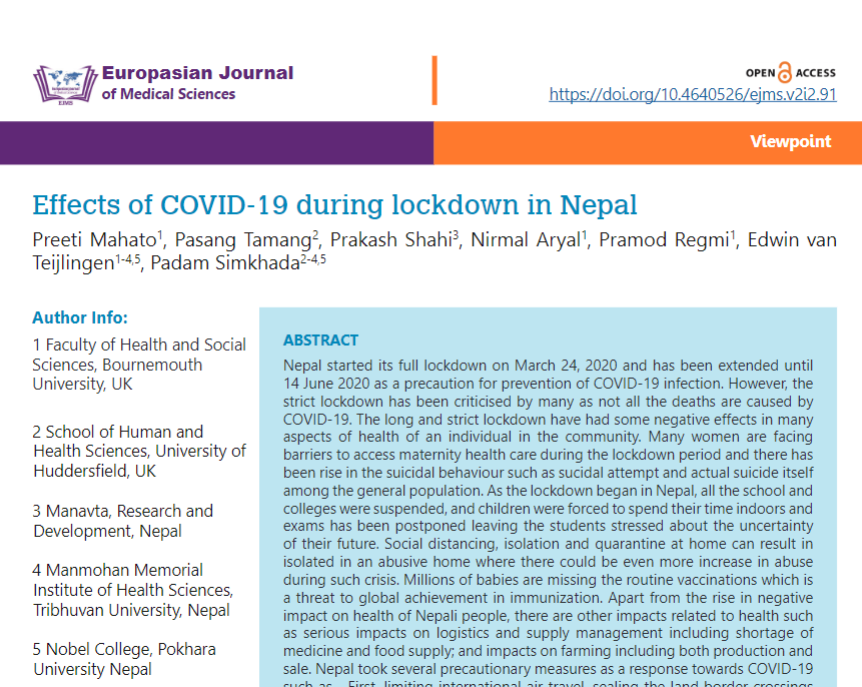 Wallis, R. and Van Raalte, C., 2020a. If industry-oriented degrees are the answer, what are some of the questions? How do students attribute value to their undergraduate experience from the perspective of post-university employment? WONKHE (19 May 2020).
Wallis, R. and Van Raalte, C., 2020a. If industry-oriented degrees are the answer, what are some of the questions? How do students attribute value to their undergraduate experience from the perspective of post-university employment? WONKHE (19 May 2020).- Wallis, R. and Van Raalte, C., 2020b. ‘Just the way the industry works’: how film and TV need to be more than fair weather industries. The Talent Manager (29 June 2020), 377.
- Wallis, R. and Van Raalte, C., 2020. Growing a sustainable workforce: A response to the DCMS Committee’s Call for Evidence for its inquiry into the ‘Impact of Covid-19 on DCMS sectors’. Discussion Paper. UK Parliament.
- Wainwright, T. and Low, M., 2020c. Beyond Acute Care: Why collaborative self-management should be an essential part of rehabilitation pathways for COVID-19 patients. Journal of Rehabilitation Medicine, 52, jrm00055.
- Wainwright, T., Gill, M., McDonald, D.A., Middleton, R.G., Reed, M., Sahota, O., Yates, P. and Ljungqvist, O., 2020. Consensus statement for perioperative care in total hip replacement and total knee replacement surgery: Enhanced Recovery After Surgery (ERAS®) Society recommendations. Acta Orthopaedica, 91 (1), 3- 19.
- Weidhase, N. and Wilde, P. 2020. ‘Art’s in pop culture in me’: Posthuman Performance and Authorship in Lady Gaga’s Artpop (2013). Queer Studies in Media and Popular Culture. (In Press)
- Wood, C. 2020. COVID-19: Protecting the medically vulnerable, British Journal of Nursing 29(12):660
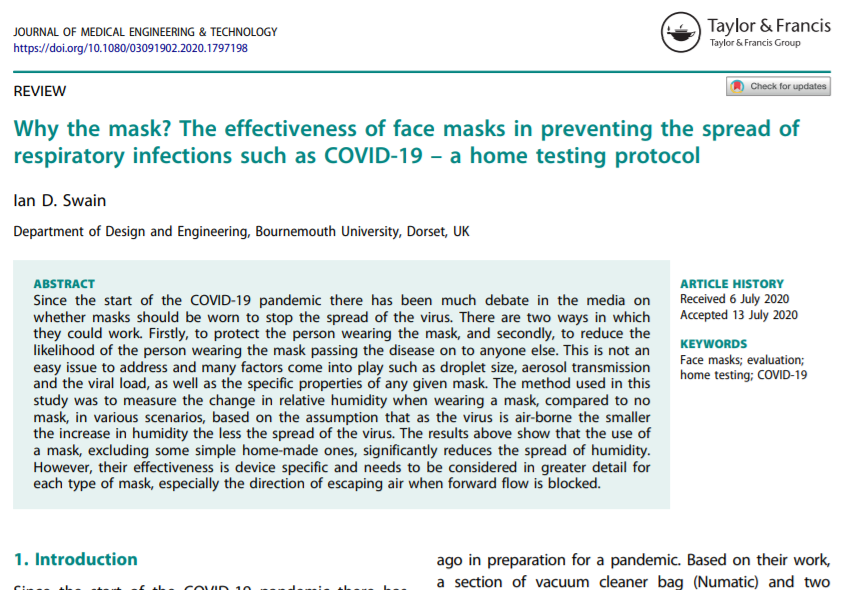 Zhao, X., 2020a. How China’s State Actors Create a “Us vs US” world during Covid-19 Pandemic on Social Media. Media & Communication, 8 (2), 452 – 457.
Zhao, X., 2020a. How China’s State Actors Create a “Us vs US” world during Covid-19 Pandemic on Social Media. Media & Communication, 8 (2), 452 – 457.- Zhao, X., 2020b. Auditing the “Me Inc.”: Teaching personal branding on LinkedIn through an experiential learning method. Communication Teacher. (In Press)
Whilst searching BU Research Blog added a further eight references:
- Aryal, N. (2020) Misinformation: a visible enemy of public health, BU Research Blog (27 May) https://blogs.bournemouth.ac.uk/research/2020/05/27/misinformation-a-visible-enemy-of-public-health/
- Alloh, F.T., Regmi, P., van Teijlingen, E. (2020) Is ethnicity linked to incidence or outcomes of Covid-19? (Rapid Response) BMJ (14 May) 369:m1548
- Ballardini, R., Santos Rutschman, A., Mendi, D. (2020) 3D Printing: How an Emerging Technology May Help Fight a Pandemic https://iprinfo.fi/artikkeli/3d-printing-how-an-emerging-technology-may-help-fight-a-pandemic/
- Heaslip, V., Parker, J. (2020) The hidden impact of coronavirus on Gypsy, Roma Travellers, The Conversation (18 August) https://theconversation.com/the-hidden-impact-of-coronavirus-on-gypsy-roma-travellers-141015
- Clarkson, B., Culvin, A., Parry, K., Pope, S. (2020) Coronavirus: the future of women’s football is under threat, The Conversation (15 June) https://theconversation.com/coronavirus-the-future-of-womens-football-is-under-threat-139582
- Batey, J., Parry, K. 2020. Coronavirus: why self-isolation brings mental health strain for elite athletes, The Conversation (14 April) https://theconversation.com/coronavirus-why-self-isolation-brings-mental-health-strain-for-elite-athletes-135273
- Hemingway, A. 2020. Nurses are on the coronavirus frontline, so why are they being left out of the response? The Conversation (9 Sept) https://theconversation.com/nurses-are-on-the-coronavirus-frontline-so-why-are-they-being-left-out-of-the-response-143658
- Miles, L. 2020. Sierra Leone faces coronavirus as rainy season hits – local disaster planning will be key, The Conversation (19 June) https://theconversation.com/sierra-leone-faces-coronavirus-as-rainy-season-hits-local-disaster-planning-will-be-key-139604

 And last, but not least, BU’s PATH project team has produced a comic book to point pregnant women and their families to a collection of trusted online resources The interactive version of the book is here.
And last, but not least, BU’s PATH project team has produced a comic book to point pregnant women and their families to a collection of trusted online resources The interactive version of the book is here.
Prof. Edwin van Teijlingen
Centre for Midwifery, Maternal & Perinatal Health (CMMPH)
New research paper published by Professor Dimitrios Buhalis in Journal of Advertising
New research paper published by Professor Dimitrios Buhalis in Journal of Advertising
Ali Selcuk Can, Yuksel Ekinci, Giampaolo Viglia & Dimitrios Buhalis (2020):
Stronger Together? Tourists’ Behavioral Responses to Joint Brand Advertising,
Journal of Advertising https://doi.org/10.1080/00913367.2020.1809574
free eprints https://www.tandfonline.com/eprint/76JWSAAMIBF3ZHQXFEHT/full?target=10.1080/00913367.2020.1809574
Abstract
Drawing on collaboration theory, this research investigates the effect of joint versus single brand advertising on tourists’ behavioral responses with two experiments. Study 1 employs a field experiment to examine the effect of joint brand advertising on tourists’ actual information search behavior. Study 2 uses a laboratory experiment to investigate the effect of joint brand advertising on tourists’ intention to visit a destination and measures whether this relationship is mediated by product interest. Study 1 suggests that, compared to single brand advertising, joint brand advertising increases tourists’ search behavior. Study 2 shows that joint brand advertising stimulates product interest, which in turn increases tourists’ intention to visit. The mediating role of product interest disappears when a destination brand forms a partnership with a lesser-reputed travel intermediary brand. The research provides implications for theory development in the area of tourism advertising, while also identifying best practices for advertisers on how to optimize the effectiveness of their campaigns.
Postgraduate Research Department Reps


A quick reminder that the application and election process for new PGR Department Reps will start later this month. If you are a PGR and would like to find out more about being a PGR Rep why not speak to your current department rep.
Details on the application and election process will be circulated later this month, in the meantime you may wish to have a read through the information flyer.
HE policy update for the w/e 3rd September 2020
So it’s back to school for pupils and teachers, and Parliament is back (although still mostly virtually). What’s in the news?
Ofqual fight back
The House of Commons Education Committee grilled Ofqual this week in a fascinating session – the transcript is here. Before the session, Roger Taylor, the Chair of Ofqual, submitted a written statement, which you can read here. We thought we would summarise the good bits for you.
Before you skip, though, the obvious question is “does it matter” – or is it all just a witch-hunt? Clearly it does matter, because some of the same issues that led the government to cancel exams this year still apply – missed school time, uneven opportunities to learn, the implications of a second wave. In our next segment, we look at the hints about next summer.
If you want to skip the next bit, the conclusion seems to be: Ofqual were handed an impossible brief by the Minister, who made it harder by changing policy on the hoof without asking them, they had a solution to it all in the form of a better appeals process to address outlying results (like high performing students in schools with poor previous performance) but never got a chance to roll it out because of the mocks fiasco, that they always thought exams should have gone ahead, and that the algorithm was fair and has been unfairly criticised by people who don’t understand the data! Gavin Williamson is giving evidence soon, so that will be worth reading. And Ofqual are going to publish correspondence so everyone can see that it wasn’t their fault….
David Kernohan has written about it for Wonkhe here.
The written statement starts with an apology to students, teachers, and HE and FE providers. As widely reported on the news channels yesterday, it confirms that Ofqual didn’t want the exams to be cancelled – they wanted them held in a socially distanced way. Gavin Williamson decided to cancel them because of concerns about lost schooling and the risks with getting students back into schools. So the well known solution and the well known moderation process was adopted.
You will recall this decision was announced on 18th March – which was very early – and might be said to have shown decisiveness and the desire to provide certainty in a complex situation. But of course that assumes that the alternative was going to be a good and not a mutant one, which we all hoped it would be…..
In the evidence session, Roger Taylor said that after Ofqual offered advice on options:
- It was the Secretary of State who then subsequently took the decision and announced, without further consultation with Ofqual, that exams were to be cancelled and a system of calculated grades was to be implemented. We then received a direction from the Secretary of State setting out what he wished Ofqual to implement.
In the statement, Ofqual say:
- The principle of moderating teacher grades was accepted as a sound one, and indeed the relevant regulatory and examination bodies across the four nations of the United Kingdom separately put in place plans to do this. All the evidence shows that teachers vary considerably in the generosity of their grading – as every school pupil knows. Also, using teacher assessment alone might exacerbate socio-economic disadvantage. Using statistics to iron out these differences and ensure consistency Written submission from Roger Taylor, Chair of Ofqual looked, in principle, to be a good idea. That is why in our consultations and stakeholder discussions all the teaching unions supported the approach we adopted. Indeed, when we consulted on it, 89% of respondents agreed or strongly agreed with our proposed aims for the statistical standardisation approach.
And they knew there were risks but on the whole the averaged out effect was correct:
- We knew, however, that there would be specific issues associated with this approach. In particular, statistical standardisation of this kind will inevitably result in a very small proportion of quite anomalous results that would need to be corrected by applying human judgment through an appeals process.
- For example, we were concerned about bright students in historically low attaining schools. We identified that approximately 0.2% of young peoples’ grades were affected by this but that it was not possible to determine in advance which cases warranted a change to grades. That is why the appeals process we designed and refined was so important. But we recognise that young people receiving these results experienced significant distress and that this caused people to question the process.
In the evidence session, Roger Taylor was asked about this and he said:
- It was clear that to make a valid judgment would require a degree of human judgment and therefore a form of appeal would be necessary to make this work, but we were also exploring with the exam boards how we could implement a system of outreach to those students through the exam boards to let them know on the day, “Look, we think you’ve probably got a very good case for appeal.” That was the direction we were moving in. When the mock appeals route came in, that question became less relevant.
And they are still defending it:
- The statistical standardisation process was not biased – we did the analyses to check and found there was no widening of the attainment gap. We have published this analysis. Indeed, ‘A’ and ‘A*’ grade students in more disadvantaged areas did relatively better with standardised results than when results were not standardised.
They were challenged on this in the evidence session.
- Robert Halfon, the chair, asked about it: The Department for Education confirmed on 14 August that pupils from lower socioeconomic groups were more likely than their peers to have their centre assessed grades downgraded by Ofqual’s algorithm at grades C and above. The difference between Ofqual’s moderated grades and teacher centre assessed grades for lower socioeconomic groups was 10.42%. In contrast, the difference between Ofqual’s moderated grades and teacher centre assessed grades for higher socioeconomic groups was 8.34%.
- Michelle Meadows, Executive Director for Strategy and Research, replied: We had done a full equalities analysis, looking at the grades not just by socioeconomic status but by other protected characteristics such as ethnicity, gender and so on, and what we were able to see and we were very confident about was that any fluctuation in outcomes seen for these various groups this year was extremely similar to the small changes in outcomes we had seen in previous years. In other words, there was nothing about the process that was biased.
And when challenged about the impact on individual students, Roger Taylor said in the evidence session:
- I disagree with the notion that this algorithm was not fit for purpose or that a better algorithm would have produced a different result; but I strongly agree with your statement that to say this was fair just fails to recognise what happens to students—just the level of accuracy that was fundamentally possible with the information that was available was too low to be acceptable to individuals, and we recognised this right at the outset. We identified this as a risk.
And on small class sizes etc
- However, the impossibility of standardising very small classes meant that some subjects and some centres could not be standardised, and so saw higher grades on average than would have been expected if it had been possible to standardise their results. This benefitted smaller schools and disadvantaged larger schools and colleges. It affected private schools in particular, as well as some smaller maintained schools and colleges, special schools, pupil referral units, hospital schools and similar institutions. We knew about this, but were unable to find a solution to this problem. However, we still regarded standardisation as preferable because overall it reduced the relative advantage of private schools compared to others.
- Ultimately, however, the approach failed to win public confidence, even in circumstances where it was operating exactly as we had intended it to. While sound in principle, candidates who had reasonable expectations of achieving a grade were not willing to accept that they had been selected on the basis of teacher rankings and statistical predictions to receive a lower grade. To be told that you cannot progress as you wanted because you have been awarded a lower grade in this way was unacceptable and so the approach had to be withdrawn. We apologise for this.
And here is the killer statement:
- With hindsight it appears unlikely that we could ever have delivered this policy successfully.
And whose fault is it?
- Understandably, there is now a desire to attribute blame. The decision to use a system of statistical standardised teacher assessments was taken by the Secretary of State and issued as a direction to Ofqual. Ofqual could have rejected this, but we decided that this was in the best interests of students, so that they could progress to their next stage of education, training or work.
- The implementation of that approach was entirely down to Ofqual. However, given the exceptional nature of this year, we worked in a much more collaborative way than we would in a normal year, sharing detailed information with partners.
- We kept the Department for Education fully informed about the work we were doing and the approach we intended to take to qualifications, the risks and impact on results as they emerged. However, we are ultimately responsible for the decisions that fall to us as the regulator.
- …. The blame lies with us collectively – all of us who failed to design a mechanism for awarding grades that was acceptable to the public and met the Secretary of State’s policy intent of ensuing grades were awarded in a way consistent with the previous year.
Autumn exams: It was clear to everyone that autumn exams would be a problem for those intending to start university this year. No plan or proposal was made for this, apart from ministerial exhortations that universities should be flexible, and vague references to a January start. Put on top of an absolute prohibition on unconditional offers, it was hard to see what universities were meant to do. Ofqual say:
- “the original policy was adopted on the basis that the autumn series would give young people who were disappointed with their results, the opportunity to sit an examination. However, the extended lockdown of schools and the failure to ensure that such candidates could still take their places at university meant that this option was, for many, effectively removed. This significantly shifted the public acceptability of awarding standardised grades”
I have no idea what that means….but it looks like blaming the context for the problems. Roger Taylor clarified it in the evidence session:
- When the decision was originally made, there was a strong belief that the autumn series would be the compensation for that—that people would be given a chance and that university places could be held open for them that they could take in January, and that that would limit that damage. At the time, it was felt that it was a fair offer, but of course, over time, schools did not reopen; there were no arrangements for late entry to university; and by July, it was clear that the autumn series did not represent any sort of reasonable alternative that candidates felt would make up for being given an inaccurate calculated grade. At that point, we were in a situation where it was difficult to see how people would accept it as a fair way to have their grades awarded.
Autonomy and influence
- Roger Taylor: The relationship is one in which the Secretary of State, as the democratically accountable politician, decides policy. Ofqual’s role is to have regard to policy and to implement policy, but within the constraints laid down by the statute that established Ofqual. Those constraints are that the awarding of grades must be valid, it must maintain standards year on year, and it must command public confidence. We can decide not to implement a direction from the Secretary of State if we feel that it would directly contradict those statutory duties, but if the policy does not directly contradict those statutory duties, our obligation is to implement policy as directed by the Secretary of State.
There was a bit more about this in the evidence session when Roger Taylor was asked about the mock appeals policy (see below) and he said:
- It is important, in trying to manage public confidence, that we do not have a Secretary of State stating one policy and Ofqual stating a different policy. It also struck us that the way to resolve this was to move at pace and it needed to be negotiated and managed in an orderly fashion. But we were acting with full independence.
The comings and goings about the use of mock results in appeals were discussed at length:
- Roger Taylor:… the Secretary of State informed us that, effectively, they were going to change policy. Until that point, the policy had been calculated grades plus an appeals process. The Secretary of State informed me that they were planning to change this policy in a significant way by allowing an entirely new mechanism by which a grade could be awarded through a mock exams appeal. Our advice to the Secretary of State at this point was that we could not be confident that this could be delivered within the statutory duties of Ofqual, to ensure that valid and trustworthy grades were being issued. The Secretary of State, as he is entitled to do, none the less announced that that was the policy of the Government.
- That having been announced as the policy of the Government, the Ofqual board felt—I think correctly—that we should therefore attempt to find a way to implement this in a way that was consistent with our statutory duties. We consulted very rapidly with exam boards and other key stakeholders. We were very concerned that this idea of a valid mock exam had no real credible meaning, but we consulted very rapidly and developed an approach that we felt would be consistent with awarding valid qualifications. We then agreed that with the Department for Education and, to our understanding, with the Secretary of State’s office. We then published this on the Saturday. We were subsequently contacted by the Secretary of State later that evening and were informed that this was in fact not, to his mind, in line with Government policy.
- ….It was published about 3 o’clock on the Saturday. I think the call from the Secretary of State was probably at around 7 o’clock, 8 o’clock that evening. The Secretary of State first phoned the chief regulator. …
- The Secretary of State telephoned me and said that he would like the board to reconsider. ….given the Secretary of State’s views, it felt appropriate to call the board together very late that evening. The board convened at, I think, around 10 o’clock that evening. I think at this stage we realised that we were in a situation which was rapidly getting out of control—that there were policies being recommended and strongly advocated by the Secretary of State that we felt would not be consistent with our legal duties, and that there was, additionally, a growing risk around delivering any form of mock appeals results in a way that would be acceptable as a reasonable way to award grades….
Grade inflation
- Ian Mearns asked: This is the problem: Ministers are regularly telling us that we have more good and outstanding schools, with the most highly professional teaching profession that we have ever had. Given that process, that improvement and that continuing improvement, should there not be some increase in the levels of achievement by youngsters year on year that cannot be put down as grade inflation?
- Roger Taylor replied: On your point about grade inflation, we were very aware that being very strict about grade inflation would only make this situation worse. That is why, in the design of the model, at every point where we could reasonably do this, we erred in the direction of making decisions that allowed grades to rise. Consequently, the final result of the moderated grades did allow for between 2% and 3% inflation in grades which, in assessment terms, is very significant and larger than would represent the sorts of effects that you talked about resulting from improvements in teaching, but we felt that that was appropriate in these extremely unusual circumstances, given the disruption happening in people’s lives as a result of the pandemic.
Issues with CAGs:
- David Simmonds MP said that he has had more complaints about the u-turn and the fairness of the CAGs than the original grades. There is concern about the lack of opportunity for students to appeal these grades.
- Roger Taylor said: It goes to the nature of the problem: there is not an independent piece of information that can be used to determine between these two competing claims. That is why the lack of any form of standardised test or examination makes this a situation that people find very hard to tolerate.
On private students (who have to take exams in the autumn):
- Roger Taylor: I have huge sympathy with these people. Clearly, they have been some of the people who have lost out most as a result of the decision to cancel exams. I will hand over to Julie to say a little bit more about this, but once the decision had been taken to cancel exams, it was very hard to find a solution. We explored extensive solutions, but ultimately the situation was one in which, once exams had been cancelled, these people had lost the opportunity to demonstrate their skills and knowledge in a way that would enable them to move forward with their lives. That was the situation we were in.
On the tiering problem (students getting a higher grade than permitted by the exam, i.e. foundation students at GCSE who can’t get higher than a 5, who got a 6, for example):
- Michelle Meadows: In the absence of papers this year, we felt that the fairest thing to do was to remove those limits on students’ performance. So there were a very small number of cases where, for the tiered qualifications, less than 1% of foundation tier students received higher grades and, for the higher tier, less than 0.5% received lower grades than they would normally achieve. We felt that it was a decision in favour of students—that they would not be constrained in the normal way.
And on BTECs:
- Roger Taylor: It was not inevitable that there would be a domino effect, because the use of calculated grades inside the BTEC system was completely different from what had gone on with general qualifications. They were two completely separate pieces: one Ofqual was closely involved with and where we had the authority to make a decision; and the second was one that Pearson were responsible for and where we had no authority to determine how they were going to respond to the situation. That was their call.
And did the algorithm mutate?
- Ian Mearns: At what point did the algorithm mutate?
- Dr Meadows: I don’t believe that the algorithm ever mutated.
So what about next year
There are already discussions about delaying the exams, some elements have been changed, there are discussions about having an online option with open book exams, etc. Ofqual have now made it extremely clear in the evidence session referred to above that they didn’t want to cancel exams this summer and they certainly don’t want to next summer, but also that they don’t want to rely on moderated CAGs again. So some form of formal assessment seems likely. But this one has some way to run.
For what was announced in August, Schoolsweek have a nice round up of the changes to A levels and for GCSEs here. The Ofqual statement about A levels, AS levels and GCSEs is here.
In their statement referred to above, Ofqual confirm that amongst the lessons learned from this year are some things that will influence next year:
- any awarding process that does not give the individual the ability to affect their fate by demonstrating their skills and knowledge in a fair test will not command and retain public confidence
- a ‘better’ algorithm would not have made the outcomes significantly more acceptable. The inherent limitations of the data and the nature of the process were what made it unacceptable
And there should have been better comms and not just by them.
In the evidence session, Roger Taylor said:
- I think we have been very clear that we think that some form of examination or standardised test, or something that gives the student an ability to demonstrate their skills and knowledge, will be essential for any awarding system that the students regard as fair. We have done some consultation, and have published the results of that consultation, but it is obviously a fast-moving environment, and the impact of the pandemic remains uncertain over the future, so it is something that we are keeping under constant review……I want to be really clear that, absolutely, we raised it in our initial consultation, and we are very conscious of the enormous benefit that would come from delay. We recognise the value in trying to find a way of making this work.
And Julie Swan said:
- Content for GCSEs, AS and A-levels is of course determined by Ministers, and Ministers, as I am sure you will know, have agreed some changes to content for a couple of GCSE subjects—history, ancient history and English literature. We have published information about changes to assessment arrangements in other subjects that will free up teaching time, such as making the assessment of spoken language in modern foreign languages much less formal. …..as well as allowing, for example, GCSE science students to observe practical science, rather than to undertake it themselves….We are working with the DFE to get to conclusions within weeks, rather than months.
Gavin Williamson’s position
Gavin Williamson gave a statement to the House of Tuesday, on the first day back. He said very, very little, really. He apologised and then moved on quickly to talk about schools going back. David Kernohan has written about this for Wonkhe too.
- The problem with having a Prime Minister who will only sack officials is that we are forced to watch senior politicians descent into near-Grayling levels of farcical inadequacy without hope of respite. Williamson’s haunted soul screams for release, but still he has to field questions about next summer while struggling to get through the next five minutes.
Research Professional cover it here.
Meanwhile in HE
The Office for Students have today launched a call for evidence into Digital teaching and learning in English Higher Education during the pandemic. It closes on 14th October 2020.
The review will consider:
- The use of digital technology to deliver remote teaching and learning since the start of the pandemic and understand what has and has not worked.
- How high-quality digital teaching and learning can be continued and delivered at scale in the future.
- The opportunities that digital teaching and learning present for English higher education in the medium to longer-term.
- The relationship between ‘digital poverty’ and students’ digital teaching and learning experience
If you are interested in contributing to a BU institutional response please contact policy@bournemouth.ac.uk as soon as possible.
Inquiries and Consultations
Have you contributed to a Parliamentary Inquiry? Many colleagues from across BU have done so over the last year, and inquiries can be relevant for both academic and professional services colleagues. Your policy team (policy@bournemouth.ac.uk) can help you prepare and submit a response – there are some important rules to follow about content and presentation, but a good submission might result in a call to give oral evidence (by video, these days) or get people talking about your submission.
You can find the list of open Parliamentary inquires here. They include (just a few examples):
- Police conduct and complaints (accepting written evidence until 14th September 2020)
- Digital transformation in the NHS {(until 9th September)
- Reforming public transport after the pandemic ?(until 24th September)
- Biodiversity and ecosystems (until 11th September)
- Black people, racism and human rights {(until 11th September)
And you can also find Secre – a small selection (these have longer dates):
- A call for evidence on a future international regulation strategy
- Pavement parking
- Marine energy projects
- Distributing Covid and flu vaccines
- Recognition of professional qualifications
- Marine monitoring
- Deforestation in UK supply chains
- Waste management plan for England
- Front of pack nutrition labelling
- Review of the Highway Code to improve road safety for cyclist, pedestrians and horse riders
Let us know if you are interested in responding to these or any others.MinisSecre
Subscribe!
To subscribe to the weekly policy update simply email policy@bournemouth.ac.uk.
Did you know? You can catch up on previous versions of the policy update on BU’s intranet pages here.. Some links require access to a BU account- BU staff not able to click through to an external link should contact eresourceshelp@bournemouth.ac.uk for further assistance.
External readers: Thank you to our external readers who enjoy our policy updates. Not all our content is accessible to external readers, but you can continue to read our updates which omit the restricted content on the policy pages of the BU Research Blog – here’s the link.
JANE FORSTER | SARAH CARTER
Policy Advisor Policy & Public Affairs Officer
Follow: @PolicyBU on Twitter | policy@bournemouth.ac.uk
New paper by Assoc Prof Dr Jayne Caudwell

Congratulations to Associate Professor Dr Jayne Caudwell of the Department of Social Sciences and Social Work and Centre for Seldom Heard Voices who has published new research on transgender and non-binary swimming and sociologies of space and safety! The paper can be accessed following this link https://www.frontiersin.org/articles/10.3389/fsoc.2020.00064/full?utm_source=F-NTF&utm_medium=EMLX&utm_campaign=PRD_FEOPS_20170000_ARTICLE
Responsible Project Management recommended for delivering UK Government Major Projects

A team led by Dr Karen Thompson from Bournemouth University Business School and Dr Nigel Williams, Reader of Project Management at the University of Portsmouth, have been developing the concept of Responsible Project Management (RPM). Their work has now been recommended for Government projects.
In written evidence to the HOUSE OF COMMONS PUBLIC ADMINISTRATION AND CONSTITUTIONAL AFFAIRS SELECT COMMITTEE, the Chartered Body for the Project Profession in the UK – the Association for Project Management (APM) – suggested that the UK Government should “focus on Responsible Project Management”.
The APM’s submission to the Select Committee and included in their July 2020 Report ‘Delivering the Government’s infrastructure commitments through major projects’ used the definition from the Guide to Responsible Project Management (2019) published by BU:
“Responsible Project Management … is the concept of managing projects with specific attention to the intended and unintended impacts of the project and its outcomes, in both the short and long term, thereby delivering economic, social and environmental impact.”
Interest in Responsible Project Management (RPM) has been growing rapidly. An initial social learning workshop was held at BU in 2018 and brought together professional project managers, educators, researchers and project management students from universities across the UK and Europe to explore the concept. The Manifesto for Responsible Project Management was developed in 2019 and launched at BU in July. Later in July, Karen and Nigel were guest bloggers for UK Major Projects Knowledge Hub and wrote for the International Project Management Association Blog. In November, Sir Peter Bonfield, Vice Chancellor of the University of Westminster introduced the London launch of the Manifesto and signed up to RPM. At the 2019 Awards of the largest global professional body for project management – the Project Management Institute (PMI) – the work was recognised with the UK Award for Innovation in Project Management and the UK Award for Community Advancement (Social Good).
By February 2020 there were more than 100 signatories to the Manifesto from across the UK, Europe and USA, and the team were receiving invitations to deliver sessions at conferences and at branch events of both APM and PMI.

Signing ceremony at Gleeds, London
Early in March 2020 the team were invited to deliver a presentation at the London office of Gleeds, Global Property and Construction Consultants. This was followed by a corporate signing ceremony where the Manifesto was signed by Graham Harle, Gleeds Global Chief Executive, representing c2,000 project professionals.
Responsible Project Management is underpinned by the UN’s 17 Sustainable Development Goals and incorporates the UN’s Principles of Responsible Management Education (PRME) to which the BU Business School is an Advanced Signatory. RPM now has 16 Ambassadors worldwide.
The RPM Team have recently been awarded HEIF-6 funding to study the competencies required for sustainable project behaviour using virtual reality and will work with colleagues in BU’s Faculty of Science and Technology on this project.
Since the UK lockdown for COVID-19 RPM work has continued virtually. From April until July the Team hosted a regular series of virtual ‘Lunch and Learn’ Meetups to support project professionals around the world. Currently they are collaborating with a range of project organisations on developing a Guide for Project Sponsors and a new syllabus to focus on developing new competencies for sustainable development. Another response to the current crisis has been an initiative to help recent graduates into work in the face of disappearing job opportunities. Collaboration with APM and the Major Projects Knowledge Hub has resulted in the launch of a pilot Scheme for Virtual Internships in Responsible Project Management. Virtual internships may be one way for organisations to create the new structures and operations they will need for a post-pandemic recovery.
New paper from Newton/Ungku Omar research collaboration with Universiti Sains Malaysia
Professors Sara Ashencaen Crabtree and Jonathan Parker of the Department of Social Sciences and Social Work and Centre for Seldom Heard Voices have published research that develops heir Newton/Ungku Omar research with Universiti Sains Malaysia for developing curricular and education for social workers in a time of pandemic.
COVID-19 resulted in massive disruption and changes in every
aspect of our lives. To curb the spread of the virus, many governments
limited the movement of people or imposed full ‘lockdowns’.
This created signific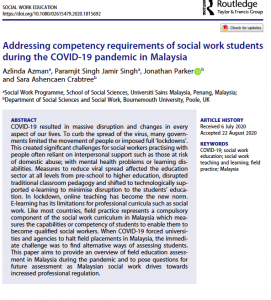 ant challenges for social workers practising with
ant challenges for social workers practising with
people often reliant on interpersonal support such as those at risk
of domestic abuse; with mental health problems or learning disabilities.
Measures to reduce viral spread affected the education
sector at all levels from pre-school to higher education, disrupted
traditional classroom pedagogy and shifted to technologically supported
e-learning to minimise disruption to the students’ education.
In lockdown, online teaching has become the new norm.
E-learning has its limitations for professional curricula such as social
work. Like most countries, field practice represents a compulsory
component of the social work curriculum in Malaysia which measures
the capabilities or competency of students to enable them to
become qualified social workers. When COVID-19 forced universities
and agencies to halt field placements in Malaysia, the immediate
challenge was to find alternative ways of assessing students. This paper aims to provide an overview of field education assessment in Malaysia during the pandemic and to pose questions for future assessment as Malaysian social work drives towards increased professional regulation.
BU researcher co-authors open access article on country images, migration and populism
Dr. Alina Dolea, member of BU Centre for Comparative Politics and Media Research, published open access together with Prof. Diana Ingenhoff from University of Fribourg (Switzerland) and Dr. Anabella Beju from Lucian Blaga University of Sibiu (Romania) the article “Country images and identities in times of populism: Swiss media discourses on the ‘stop mass immigration’ initiative” in International Communication Gazzette: https://journals.sagepub.com/doi/full/10.1177/1748048520913462
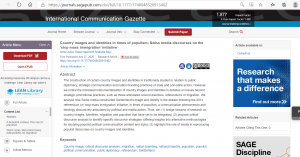
The research was carried out during Dr. Dolea’s SCIEX postdoctoral fellowship at University of Fribourg and funded through the SCIEX competitive grant “Discourses on country image promotion and identity in Western and Eastern Europe. A comparative study on Switzerland and Romania (DiCoPro)”. The Scientific Exchange Programme (Sciex-NMSch) was part of the Swiss Contribution to the New Member States (NMS) of the European Union.
The article shows country images are instrumentalized in public debates beyond strategic communication contexts and practices. The authors innovatively linked studies on country images and identities with migration and populism as communication phenomenon and ideology discursively articulated by political and media actors. They used Critical Discourse Analysis to show how media construct, re-construct and mobilize various representations and descriptors of Switzerland (as a country, as a state or as a nation) in the debates following the 2014 Swiss referendum on “stop mass immigration initiative”. Projecting fictitious scenarios, fear and uncertainty, media have ultimately constructed Switzerland’s image through a populist type of discourse, reproducing the populist ideology of dividing society into polarized categories through strategies of inclusion and exclusion.
This is a great example of multidisciplinary research carried out within the International Communication Association, as authors linked streams of critical research emerging within the Public Diplomacy Interest Group with more established research on populism within the Political Communication Division.
Demystify Author Article Workflow Masterclass
How well do you really understand how an academic author is published?
With around three million articles published a year*, authors are under increasing pressures to publish in recognized and credible journals – that’s a lot of articles! Some are publishing for the first time, others publishing their 70th article ‘that’ year.
The presenter will run through the basics of the academic author user journey for pre, during and post-publication workflow. The webinar will also look at their pain points, and opportunities to connect with authors as part of their journey.
Register now to better connect with authors. Can’t make the date? No problem, register and you will be sent access to the recorded version when suits you.
Please click on the link below to sign up to the webinar:
https://zoom.us/webinar/register/2815983615199/WN_UUMlfAlBSoWY1xYris6-wQ
Research Professional – all you need to know
 Every BU academic has a Research Professional account which delivers weekly emails detailing funding opportunities in their broad subject area. To really make the most of your Research Professional account, you should tailor it further by establishing additional alerts based on your specific area of expertise. The Funding Development Team Officers can assist you with this, if required.
Every BU academic has a Research Professional account which delivers weekly emails detailing funding opportunities in their broad subject area. To really make the most of your Research Professional account, you should tailor it further by establishing additional alerts based on your specific area of expertise. The Funding Development Team Officers can assist you with this, if required.
Research Professional have created several guides to help introduce users to Research Professional. These can be downloaded here.
Quick Start Guide: Explains to users their first steps with the website, from creating an account to searching for content and setting up email alerts, all in the space of a single page.
User Guide: More detailed information covering all the key aspects of using Research Professional.
Administrator Guide: A detailed description of the administrator functionality.
In addition to the above, there are a set of 2-3 minute videos online, designed to take a user through all the key features of Research Professional. To access the videos, please use the following link: http://www.youtube.com/researchprofessional
Research Professional are running a series of online training broadcasts aimed at introducing users to the basics of creating and configuring their accounts on Research Professional. They are holding monthly sessions, covering everything you need to get started with Research Professional. The broadcast sessions will run for no more than 60 minutes, with the opportunity to ask questions via text chat. Each session will cover:
-
Self registration and logging in
-
Building searches
-
Setting personalised alerts
-
Saving and bookmarking items
-
Subscribing to news alerts
-
Configuring your personal profile
Each session will run between 10.00am and 11.00am (UK) on the fourth Tuesday of each month. You can register here for your preferred date:
These are free and comprehensive training sessions and so this is a good opportunity to get to grips with how Research Professional can work for you.
Have you noticed the pink box on the BU Research Blog homepage?
 By clicking on this box, on the left of the Research Blog home page just under the text ‘Funding Opportunities‘, you access a Research Professional real-time search of the calls announced by the Major UK Funders. Use this feature to stay up to date with funding calls. Please note that you will have to be on campus or connecting to your desktop via our VPN to fully access this service.
By clicking on this box, on the left of the Research Blog home page just under the text ‘Funding Opportunities‘, you access a Research Professional real-time search of the calls announced by the Major UK Funders. Use this feature to stay up to date with funding calls. Please note that you will have to be on campus or connecting to your desktop via our VPN to fully access this service.
Postgraduate Research & Doctoral College Blog Categories
To help make information more accessible on the blogs, we have two new categories across all Faculty blogs to highlight information related to the Doctoral College and Postgraduate Researchers.




Supporting integrated theses at BU
Over the last few months Library and Learning Support has been developing its guidance for integrated theses. This is a new format for BU which allows a candidate to incorporate material into their PhD already published or which they intend to publish elsewhere.
Orlanda Harvey was the guinea pig for our new guidlines when she submitted her thesis in July. Her title was “Male anabolic androgenic steroid-users: A mixed-methods study” and included articles which had been published as well as some intended for publication in the future.
I caught up with Orlanda recently to see how she had found the process, why she had taken the route of doing her thesis in this way and what advice she had for us in planning support for students doing integrated theses in the future.
You can watch our conversation and see our guidance for submitting an integrated thesis to the library in our Postgraduate Researcher Library Guide.
Free online masterclass – promotion and the media for public engagement

This free online masterclass will explore how best to promote your public engagement activity so that it reaches your intended audience and has the maximum impact. It will also cover ideas for generating local and national media around your research and event.
Led by the Being Human Festival team, Dr Michael Eades will share tips on promotion, communication and reaching intended audiences, while Professor Sarah Churchwell will discuss ways to make academic research converge with the media agenda. Organisers from last year’s festival will also give flash talks that provide helpful insights and tips from their Being Human events, which included hosting popular activities for families and local communities.
Throughout there will be opportunities to get involved in the conversation and ask questions. Attendees will also be emailed a masterclass pack full of helpful information and toolkits on the topic.
Although this event is aimed at those taking part in this year’s Being Human festival, it may also be of interest to those generally thinking about public engagement in the humanities.
Speakers:
- Professor Sarah Churchwell is the director of the Being Human festival. A prominent advocate for literature and the humanities, Sarah appears regularly in the media and writes for both academic and non-academic audiences.
- Dr Michael Eades is manager and curator of the Being Human festival. He has also run numerous public engagement initiatives such as ‘Bloomsbury Festival in a Box’ which engaged socially isolated people with dementia.
- Dr Misha Ewen is a Hallsworth Research Fellow at the University of Manchester. She ran a popular family history workshop for the 2019 festival entitled ‘Discovering Caribbean Family Memories’, which featured in the Manchester Evening News.
- Dr Elaine Canning is Head of Cultural Engagement and Development at Swansea University and has led several successful Being Human festival hub programmes, including their 2019 family-friendly programme of activities that included museum takeovers, plays and a big book treasure hunt.
Joining the event:
This event is free, but booking is required. It will be held online with details about how to join the virtual meet-up being circulated via email to registered attendees. The masterclass will begin at 11:00am, but you will be able to join the event’s online waiting room from 10:30am.
Book now
Writing Week – support from BUCRU and RDS


Writing Week in the Faculty of Health and Social Sciences is coming up next week and we wanted to highlight some of the expertise within BUCRU and NIHR RDS (Research Design Service) and remind you that we’re available to provide support for your health or social care research.
Bournemouth University Clinical Research Unit (BUCRU) supports researchers in improving the quality, quantity and efficiency of research across the University and local NHS Trusts.
We do this by:
- Helping researchers develop high quality applications for external research funding (including small grants)
- Ongoing involvement in funded research projects
How can we help?
BUCRU/RDS can provide help in the following areas:
- Formulating research questions
- Building an appropriate team
- Study design
- Appropriate methodologies for quantitative research, e.g. statistical issues, health economics
- Appropriate methodologies for qualitative research, e.g. sampling, analytical strategies
- Advice on data management and data analysis
- Identifying suitable funding sources
- Writing plain English summaries
- Identifying the resources required for a successful project
- Critical reviews of proposed grant applications can be obtained through our Project Review Committee before they are sent to a funding body.
- Patient and public involvement in research
- Trial management
- Ethics, governance and other regulatory issues
- Linking University and NHS researchers
Over the coming weeks we’ll cover some of these areas in more detail in future blogs and how we can help you.
Our support is available to Bournemouth University staff and people working locally in the NHS, and depending on the support you require, is mostly free of charge. There are no general restrictions on topic area or professional background of the researcher.
If you would like support in developing your research please get in touch through bucru@bournemouth.ac.uk or by calling us on 01202 961939. Please see our website for further information, details of our current and previous projects and a link to our recent newsletter.
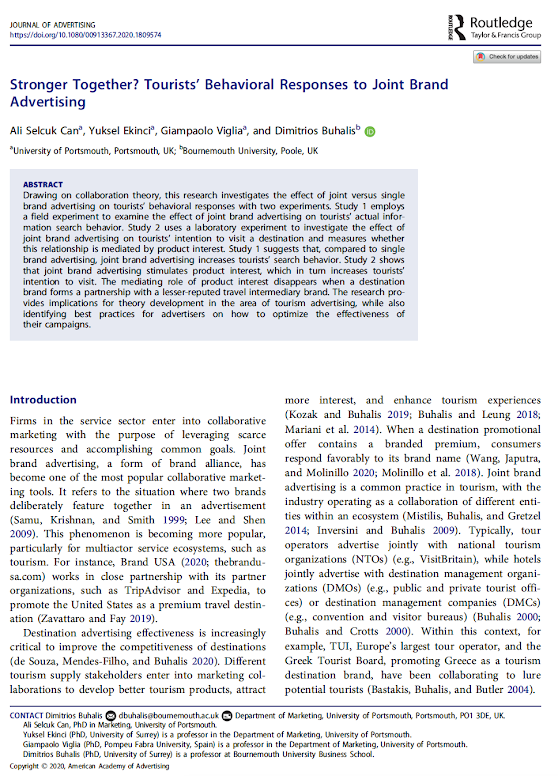











 REF Code of Practice consultation is open!
REF Code of Practice consultation is open! BU Leads AI-Driven Work Package in EU Horizon SUSHEAS Project
BU Leads AI-Driven Work Package in EU Horizon SUSHEAS Project Evidence Synthesis Centre open at Kathmandu University
Evidence Synthesis Centre open at Kathmandu University Expand Your Impact: Collaboration and Networking Workshops for Researchers
Expand Your Impact: Collaboration and Networking Workshops for Researchers ECR Funding Open Call: Research Culture & Community Grant – Apply now
ECR Funding Open Call: Research Culture & Community Grant – Apply now ECR Funding Open Call: Research Culture & Community Grant – Application Deadline Friday 12 December
ECR Funding Open Call: Research Culture & Community Grant – Application Deadline Friday 12 December MSCA Postdoctoral Fellowships 2025 Call
MSCA Postdoctoral Fellowships 2025 Call ERC Advanced Grant 2025 Webinar
ERC Advanced Grant 2025 Webinar Update on UKRO services
Update on UKRO services European research project exploring use of ‘virtual twins’ to better manage metabolic associated fatty liver disease
European research project exploring use of ‘virtual twins’ to better manage metabolic associated fatty liver disease